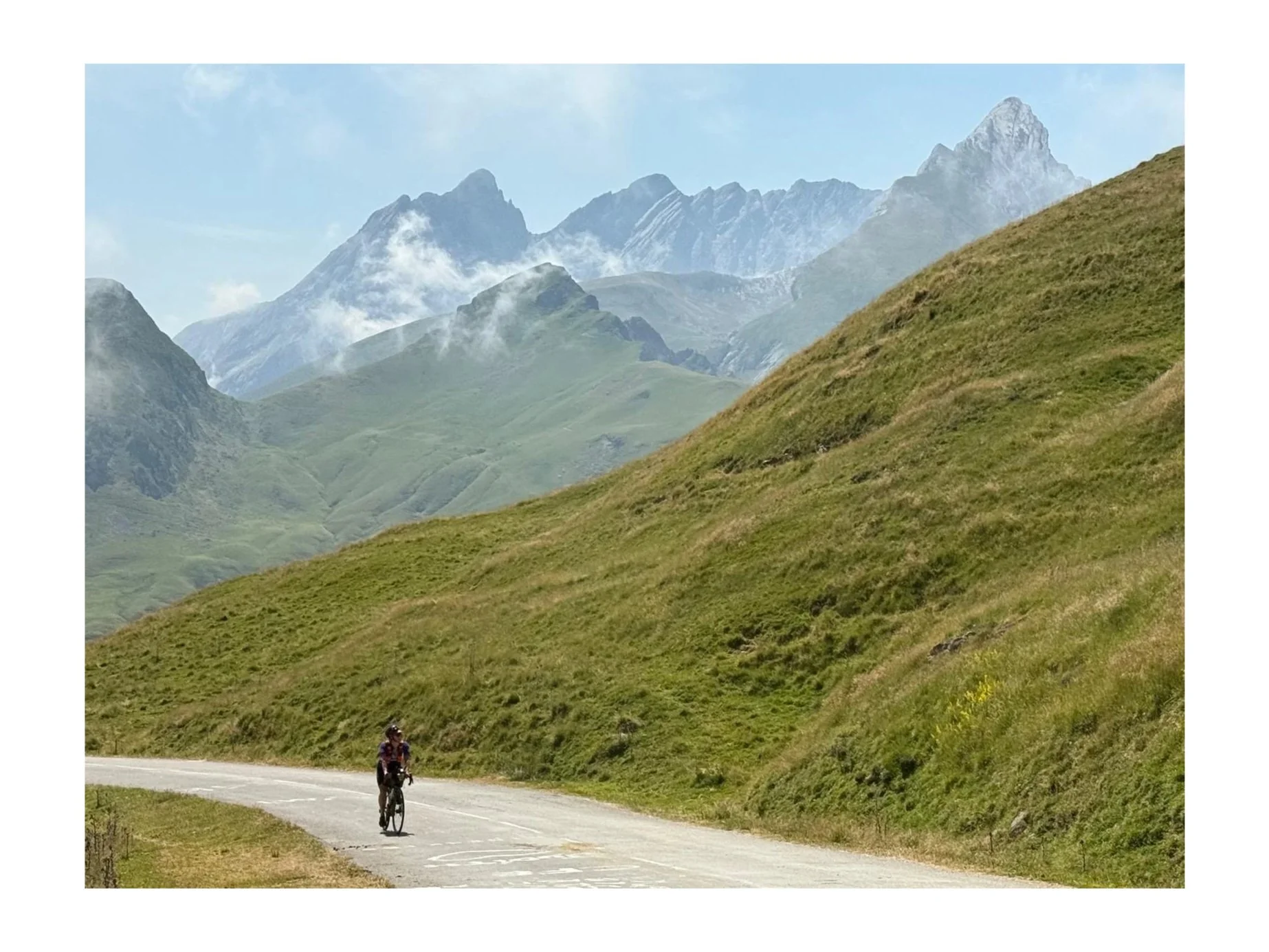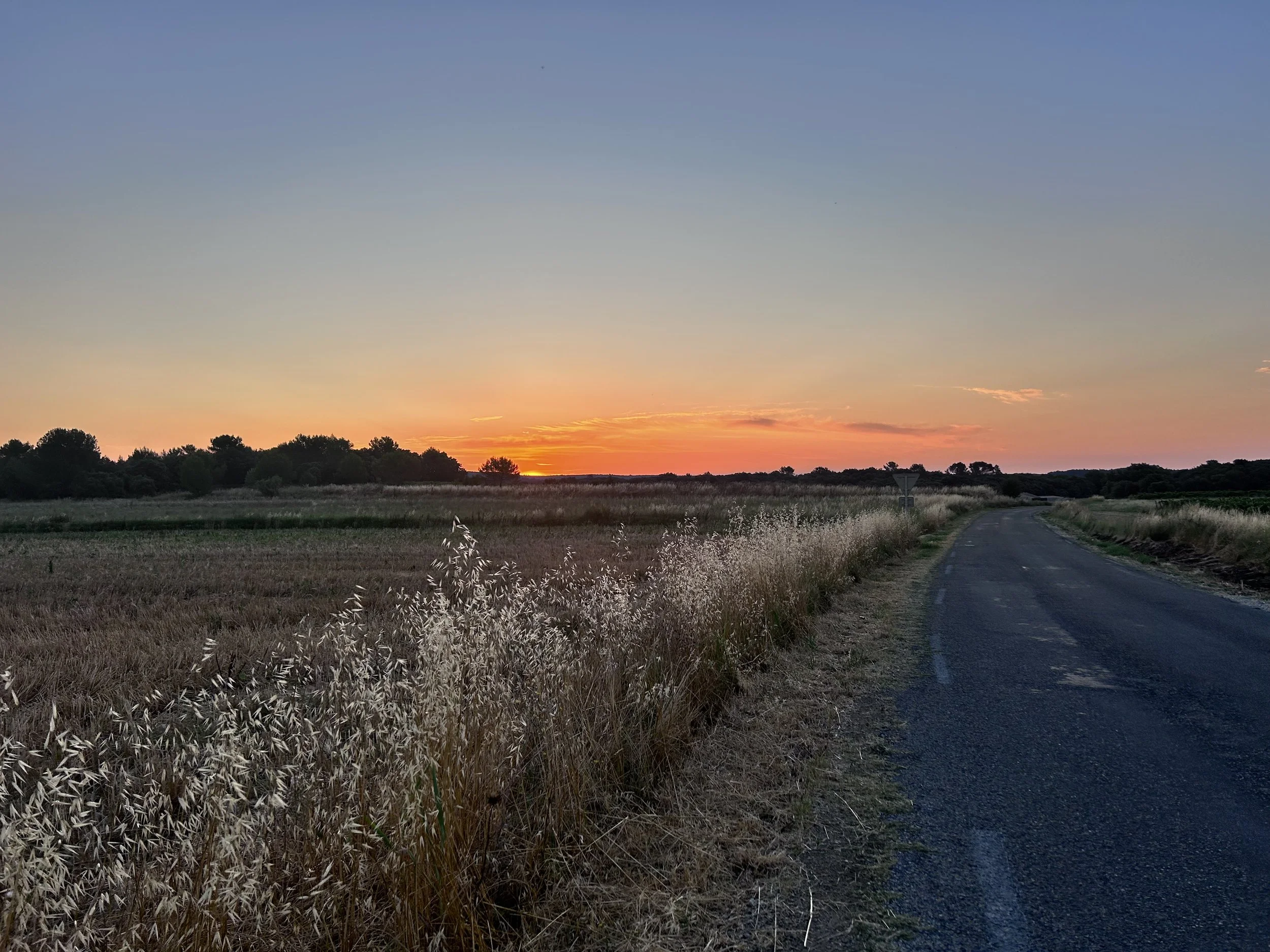I have lost confidence in myself and doubt my own judgement. How can I rebuild it?
This is a common question from my clients, and it can be a tough one because, hey, what on earth is confidence anyway? What it means for me will be quite different to what it means for you.
The good news is that confidence isn’t random — there is a pattern to the traits that work together to generate it. These come up time and time again, and they are courage, consistency, and composure. Even better news is that you can easily identify which one needs attention, and then work to strengthen it to improve your overall confidence.
It was a particular encounter this summer that made me realise that these elements alternate. They come and go in a confidence cycle. And given that I love a pun, you will appreciate my joy in reporting that this lightbulb moment happened whilst riding my bike.
Grinding my way up the col d’Aubisque
As I rolled sweat-soaked and dehydrated into the first of 10 checkpoints on a 4,400 km race in late June, I felt both relief and euphoria. It was day two and I already had 400 km and 20 hours of riding time under my belt. Checkpoints were to be unmanned, so I was surprised and delighted to see a race official there with his camera. It had only been two days since we started, but the searing heat meant it had already felt like a week. With only a handful of riders on the start line, human contact had been minimal, so the shared moment gave me a real boost.
Ultra racing is all about reducing stoppage time. So after a quick exchange about dynamo lights (yes, really), I took the obligatory proof-of-checkpoint-selfie, rearranged my already-chafing shorts, and got ready to go. And then he hit me with this casual yet crushing observation:
YOU STOPPED EARLY YESTERDAY!
I say hit because the effect on me was more like a physical blow.
I felt shame, followed by anger and then a tsunami of imposter-type feelings. You’re the worst rider. You’re not good, strong, or brave enough. You shouldn’t be here. My smile froze as my mind raced to process the internal conflict: do not show him what you are feeling.
He wasn’t being malicious; in an ultra-riding context, he was right. Yesterday - the day he was talking about - I had started at 4.30am and been on the road for 15 hours. I stopped when I found somewhere to stay in the last town before a vast stretch of Slovakian national park with no viable sleep or food options. This was inkeeping with my plan to ride for as long as possible daily, whilst ensuring I could still find a safe space to sleep.
But there were still two hours of daylight left when I stopped, and the point he was making, was that I could or should have ridden for longer that day.
The trouble is, that when someone more experienced than you implies that you have made a bad decision, and if that comment also happens to hit some of your insecurities, it can knock your confidence. Often disproportionately. This is when it helps to think about confidence as a cycle of courage, consistency and composure.
I said goodbye through gritted teeth, and pedalled onwards. I felt deflated and judged so I allowed myself an out-of-earshot rant, and then a bit of a wallow. I even had a little sob. I should have been feeling great because I was following my plan - a plan which ultimately got me 3,200km through the race before the heatwave finally did for me. But I was starting to dip because a throw-away comment had set off an unhelpful pattern of thoughts about whether or not I was capable of this race.
Luckily my coach had encouraged me to practise various psychological tricks to help with the low points. I recognised the futility of letting someone else’s view shake my confidence, and I fell back on a mantra:
COURAGE
CONSISTENCY
COMPOSURE
The first two had got me to the start line, the third C - composure - was what I now needed.
Remembering this meant I could deploy a quick tool to winkle me out of my wallowing: values alignment. This entails recalling your values to remember what really matters to you; using this to draw your attention away from the thing that’s bothering you; and then regaining perspective. So you are regulating your emotions (i.e. achieving composure) by bringing to mind what you really care about and then focusing on it.
Not long after our exchange the sun started to set.
A large part of my reason for riding — and putting up with some of the more miserable elements of endurance sport — is for moments like these. If I had still been dwelling on the earlier comment, there’s no way I would have been able to pause, breathe, and savour this stunning sunset. Focusing on what mattered allowed me to shift perspective, and to revel instead in the flood of positive emotions triggered for me by the beauty in nature.
However, I realise that dealing with this stuff when you have time to reflect out of the office is all very well, but how does the confidence cycle work when your colleague is doing all they can to stick a spoke in your wheel?
We’ve all had the passive-aggressive observation about our line-management approach which hints at some fatal flaw. Or a helpful colleague’s suggestion that we do something differently, just when we thought we had it dialled. This is when doubt creeps in, we question our judgement, and our confidence can ebb.
Well, you don’t necessarily need a sunset. You just need to pause and know that you have choice in your response because someone’s words do not make you feel something - it is your thoughts that determine your emotions.
If you respond with self-doubt and irritation, as I did in that moment on the bike, remember instead that confidence is an ever-changing cycle, with component parts that can be strengthened and deployed as needed:
Courage helps us to take a first step when we are unsure.
Consistency keeps us moving forward and reinforces our courage.
Composure helps us to weather the blows and keep the cycle going.
If you want some quick tools and resources to build your own confidence and that of others, download November’s Gripped worksheet.













